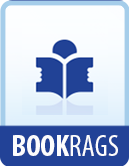“Yes,” said Amroth, “that was the misery of the poor body!”
“And yet I used to think,” I said, “in the old days that I was grateful to the body for many pleasant things it gave me—breathing the air, feeling the sun, eating and drinking, games and exercise, and the strange thing one called love.”
“Yes,” said Amroth, “all those things have to be made pleasant, or to appear so; otherwise no one could submit to the discipline at all; but of course the pleasure only got in the way of the thought and of the happiness; it was not what one saw, tasted, smelt, felt, that one desired, but the real thing behind it; even the purest thing of all, the sight and contact of one whom one loved, let us say, with no sensual passion at all, but with a perfectly pure love; what a torment that was—desiring something which one could not get, the real fusion of feeling and thought! But the poor body was always in the way then, saying, ‘Here am I—please me, amuse me.’”
“But then,” I said, “what is the use of all that? Why should the pure, clear, joyful, sleepless life I now feel be tainted and hampered and drugged by the body? I don’t feel that I am losing anything by losing the body.”
“No, not losing,” said Amroth, “but, happy though you are, you are not gaining things as fast now—it is your time of rest and refreshment—but we shall go back, both of us, to the other life again, when the time comes: and the point is this, that we have got to win the best things through trouble and struggle.”
“But even so,” I said, “there are many things I do not understand—the child that opens its eyes upon the world and closes them again; the young child that suffers and dies, just when it is the darling of the home; and at the other end of the scale, the helpless, fractious invalid, or the old man who lives in weariness, wakeful and tortured, and who is glad just to sit in the sun, indifferent to every one and everything, past feeling and hoping and thinking—or, worst of all, the people with diseased minds, whose pain makes them suspicious and malignant. What is the meaning of all this pain, which seems to do people nothing but harm, and makes them a burden to themselves and others too?”
“Oh,” said he, “it is difficult enough; but you must remember that we are all bound up with the hearts and lives of others; the child that dies in its helplessness has a meaning for its parents; the child that lives long enough to be the light of its home, that has a significance deep enough; and all those who have to tend and care for the sick, to lighten the burden and the sorrow for them, that has a meaning surely for all concerned? The reason why we feel as we do about broken lives, why they seem so utterly purposeless, is because we have the proportion so wrong. We do not really, in fact, believe in immortality, when we are bound in the body—some few of us do, and many of us say that we do. But we do not realise that the little life is but one in




